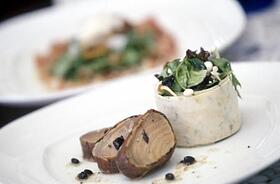 In order to maintain a great reputation, California restaurant owners pride themselves on high standards of food, hygiene and safety. Ensuring that the business has insurance coverage for disasters such as food spoilage is prudent. No restaurant owner wants to have to deal with that, so how can restaurants avoid food spoilage in the first place?
In order to maintain a great reputation, California restaurant owners pride themselves on high standards of food, hygiene and safety. Ensuring that the business has insurance coverage for disasters such as food spoilage is prudent. No restaurant owner wants to have to deal with that, so how can restaurants avoid food spoilage in the first place?
Food spoilage is a nightmare. It not only leads to poor food taste and presentation, but can lead to critical illnesses for restaurant customers and employees. Spoiled food cannot be served if a restaurant wants to maintain a great reputation. Unfortunately trashing spoiled food when it happens is also not the ideal solution to prevent it in the first place. These guidelines are useful in preventing food spoilage:
Guidelines and preventing food spoilage for restaurants
The purchasing process is where it all starts. Restaurant owners should ensure that stock is always purchased from licensed and approved vendors to ensure freshness. High standards should be required from stock purchases. For example, ensuring green leaves and a certain standard of ripeness can keep greens fresher longer. Reviews should be carried out to ensure overstocking does not occur.
On arrival, stock should be checked again for freshness to ensure it has arrived in top condition. Refrigerated items should arrive at their required temperature. Any items that do not conform should be rejected.
Efficient storage is key to preventing food spoilage
Improving the storage methods at a restaurant can improve shelf life of food stock. Rotating the stock so that the older items are consumed first is also a best practice. Keep note of dates each item was received. It should be standard practice to store pastas in a cool dry place, frozen foods at 0 degrees, and refrigerated items at 41 degrees.
The highest risk items in any restaurant stock are meat, eggs, cheese and fish products. According to the FDA, these can be stored in a refrigerator for up to seven days. Inventories of all items should be kept in order to keep track of what foods are beyond their usage dates.
Despite the best efforts of restaurant owners, food spoilage is sometimes unavoidable. Lack of demand can mean that stock is not used when it should be, or weather conditions can cause power outages that will knock out refrigeration systems. When this happens, Food service PLUS coverage protects against lost income due to food spoilage.
To discuss restaurant insurance coverage and food spoilage coverage, contact Sutherland-Scherff today.
Sutherland-Scherff have put together some Top Tips to highlight ways of managing Loss Control for operators of restaurants and food service establishments such as cafes, pizzerias, delis that cook and serve food. Download the Top Tips now





